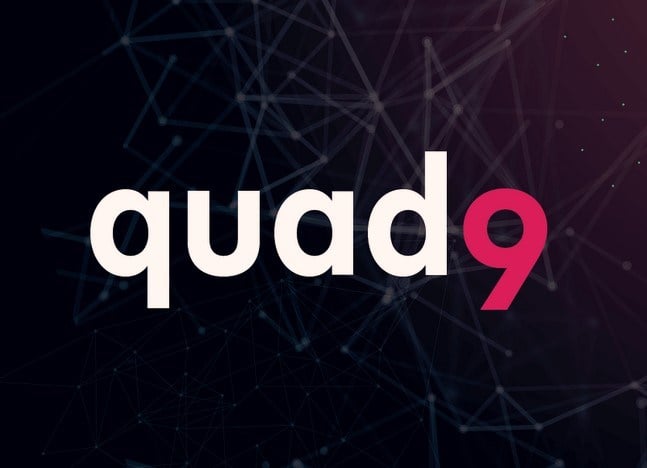 In 2021, Sony Music obtained an injunction ordering DNS resolver Quad9 to block the popular pirate site Canna.to.
In 2021, Sony Music obtained an injunction ordering DNS resolver Quad9 to block the popular pirate site Canna.to.
The injunction, issued by the District Court of Hamburg, required the Swiss DNS resolver to block its users from accessing the site to prevent the distribution of pirated copies of Evanescence’s album “The Bitter Truth“.
Quad9 Appeals Site Blocking Injunction
The Quad9 Foundation fiercely opposed the injunction. The not-for-profit foundation submitted an appeal hoping to overturn the blocking order, arguing that the decision set a dangerous precedent.
The DNS resolver stressed that it doesn’t condone piracy but believes that enforcing blocking measures through third-party intermediaries, that don’t host any content, is a step too far.
This initial objection failed; the Regional Court in Hamburg upheld the blocking injunction. However, this was only a preliminary proceeding and Quad9 promised to continue the legal battle, warning of a broad impact on the Internet ecosystem.
Sony Starts Main Proceeding
After Sony’s preliminary victory, the music company initiated a main proceeding at the Leipzig court. This was the next step in the legal process and allowed both sides to provide more evidence and expert opinions.
Sony, for example, referenced earlier jurisprudence where Germany’s Federal Court ruled that services such as YouTube can be held liable for copyright infringement if they fail to properly respond to copyright holder complaints.
Quad9’s expert, Prof. Dr. Ruth Janal, contested this line of reasoning, noting that, under EU law, DNS resolvers shouldn’t be treated in the same fashion as platforms that actually host content.
Court Confirms Blockade
After hearing arguments from both sides, earlier this year the Regional Court of Leipzig handed a win to Sony. This means that Quad9 is required to block the music piracy site canna.to. If not, those responsible face a hefty fine, or even a prison sentence.
“The defendant is liable as a perpetrator because it makes its DNS resolver available to Internet users and, through this, it refers to the canna.to service with the infringing download offers relating to the music album in dispute,” the Court wrote.
Judge Werner argues that Quad9 should have taken action when the copyright holder alerted it to a pirated copy of the Evanescence album. Its intentional failure to act makes the DNS resolver liable.
Quad9 Appeals
Quad9 characterized the decision of the Leipzig Regional Court as absurd. In essence, it ruled that a DNS resolver can be held liable for the infringements of third-party websites. This is contrary to EU and German law, according to the foundation.
The DNS resolver sees itself as a neutral intermediary but the court’s judgment classified it as an actual wrongdoer. This is an “absurdly extreme” decision according to Quad9, which filed an appeal at the Dresden Higher Regional Court last month.
Under EU and German law, DNS providers should be classified as Internet access providers, not hosting platforms. As such, they shouldn’t be held directly liable for third-party infringements.
“[H]osting providers or platforms through which content is made available for retrieval via the Internet are fundamentally different in terms of their technical functionality and also the provider’s ability to influence content posted by customers to operate a DNS resolver,” the appeal filing reads.
German Ruling, Global Blockade
Quad9 was already heavily disappointed by the original court ruling but then a few weeks ago, the situation took another turn for the worse.
Sony wasn’t happy with the geo-blocking measures taken by the DNS provider to comply with the ruling. The music company applied for an administrative fine at the Regional Court in Hamburg, arguing that the measures were ineffective.
According to Sony, the blocked Canna.to (and the new canna-power.to domain) site could still be reached by Germans through a VPN. In addition, users of an unnamed mobile network were also able to access the site, presumably because their traffic was routed outside of Germany.
Facing a €10,000 administrative fine, Quad9 felt that it had no other option than to block the pirate site globally, across its entire service.
“The fact that the court issued a fine meant that we had to impose the blocking at the global level,” Quad9 explains.
The DNS provider doesn’t agree with the fine as it has zero control over how third parties may circumvent blocking measures. However, its hands are tied and a global blockade is the only solution now.
Ultimately, Quad9 hopes that the lower court’s blocking order will be overturned on appeal. It will continue to fight the case, even if that takes several years.
“Quad9 is prepared to continue the battle for freedom of access to information and Internet sovereignty. Cases like this are typically drawn out over the course of months and years.
“We hope that we will ultimately prevail as we consider it to be inappropriate and disproportionate to be required to roll out blocking based on a court decision in one country to result in a global block,” Quad9 concludes.
—-
A translated copy of the appeal brief filed by Quad9’s lawyer at the Dresden Higher Regional Court is available here (pdf)





